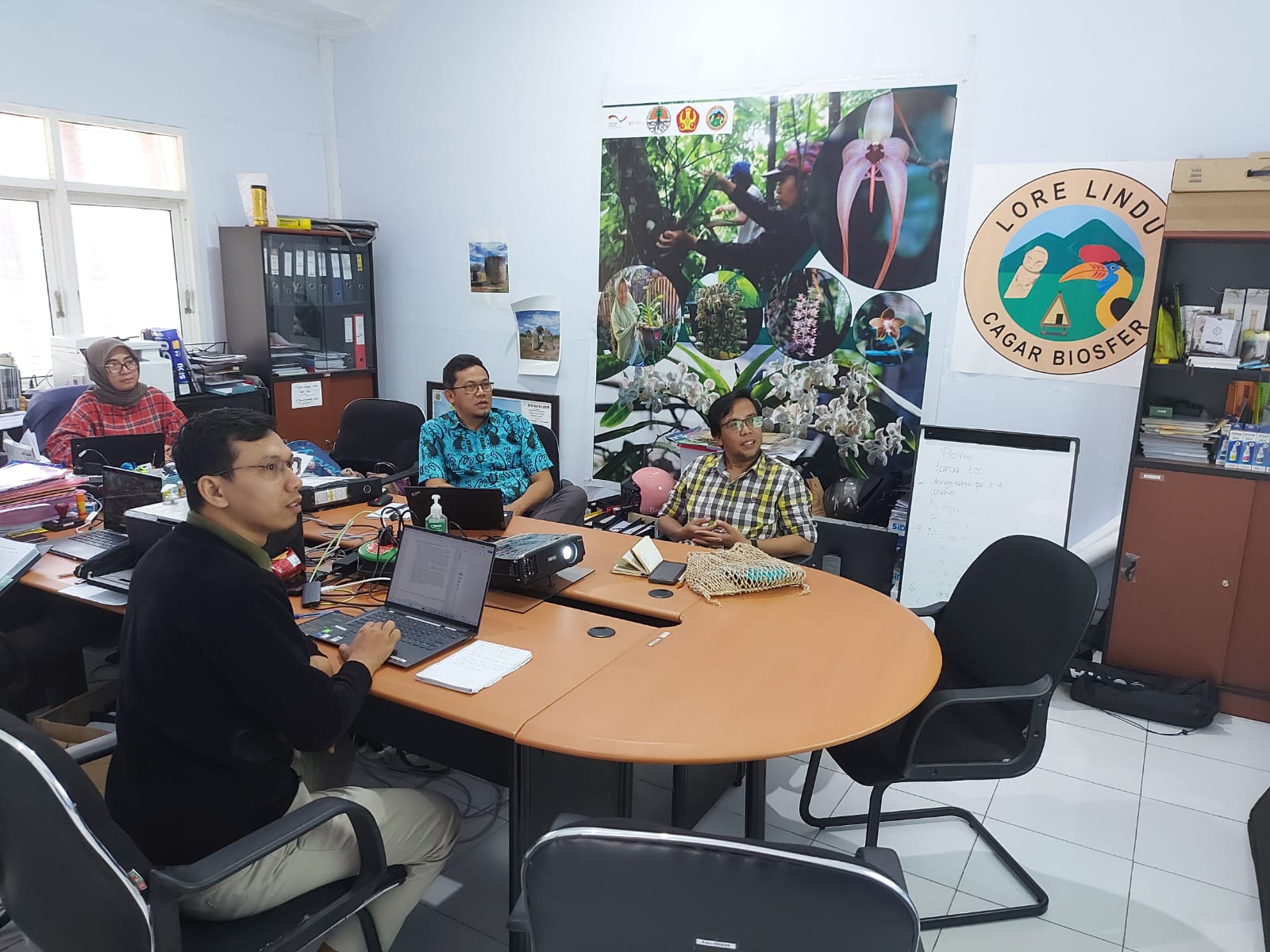
The strengthening of community capacity, particularly in relation to social forestry groups, is one of the empowerment activities that is currently being facilitated by FORCLIME through various activities. These activities include training sessions that are being organized in order to increase community capacity as regards forest management, thereby improving the living standards of village populations.
One such social forestry scheme is the Customary Forest scheme. The To Lindu Customary Law Community (MHA) in Central Sulawesi, facilitated by the Customary Area Registration Agency (BRWA), has obtained a designation for its customary forest through the issuance of Decree of the Minister of Environment and Forestry Number 5677/MENLHK-PSKL/PKTHA/PSL.1/9/2021 on the Establishment of the Katuvua To Lindu Customary Forest Reserve. This reserve covers an area of 6,473 hectares and is located in Sigi Regency.
In the process of proposing customary forests, BRWA Central Sulawesi has identified a number of key activities, specifically: (1) Village meetings on the internalizing of customary forests; and (2) Strengthening of traditional institutions. After the establishment of customary forests, these activities were elaborated upon so that MHA To Lindu will now be able to manage and utilize the potential of its customary forest sustainably in accordance with customary legal norms and local wisdom.
in assisting MHA To Lindu in the management of its customary forest on 14 May 2024. Through this collaboration, the hope is that the following goals will be achieved:
Development of a joint action plan at the village level involving relevant parties in line with principles of sustainable forest management,
Revitalization of traditional institutions, particularly in terms of the management of the Katuvua To Lindu Customary Forest Reserve;
Ensuring that the management of the Katuvua To Lindu Customary Forest Reserve is implemented in accordance with local customs;
Increasing the capacities of the traditional council and traditional village institutions in line with customary forest governance;
Preparation of an agreement on the management model for the Katuvua To Lindu Customary Forest Reserve.
Activities that will be implemented include:
- Assistance with the strengthening of customary forest management institutions. This activity will be carried out over a four-month period and will involve the assignment of one staff member in the field who will live on-site at the work location for 15 days per month in order to provide technical assistance and facilitate discussions, FGDs and village meetings in Ngata Lindu.
- Identification and spatial marking of the boundaries of the Katuvua To Lindu Customary Reserve Forest through the surveying of locations for customary forest use and the marking of boundaries.
- Monitoring and evaluation activities that will be implemented to gauge overall progress.
- Drawing up of reports in both Indonesian and English, which should be completed within two weeks of the conclusion of the entire series of activities. In addition, reports will also be presented during joint discussions with stakeholders.
Furthermore, several types of activities will be organized and will specifically address preparations for the governance of MHA To Lindu, including:
- Workshop on synergy between the Katuvua To Lindu Customary Forest Management and stakeholders, which will be aimed towards the formulation of various sustainable customary forest management scenarios with relevant stakeholders.
- Workshop on the preparation of a Medium-Term Management Plan (RPJM) for the Katuvua To Lindu Customary Forest Reserve.
To date, MHA To Lindu has managed to maintain its various traditions from generation to generation. In this regard, various territorial division regulations are implemented by the Lindu Traditional Council, as follows:
- Wanangkiki Forest, namely forest areas that cannot be managed by the community at all, such as upstream river areas.
- Ntodea Protected Forest, which can be used by the community in order to meet limited needs, such as use of the fruit and leaves of palm trees in order to make palm fiber.
- Pangale Forest, which comprise community cultivation areas that implement five-year gaps in relation to farming.
- Pobondea Forest, which can be used to cultivate productive plants such as coffee.
- Popampa, which can be planted with secondary crops.
- Polida, which comprise rice field areas.
For more information, please contact:
Arif Hidayat, Junior Forestry and Biodiversity Advisor
Ismet Khaeruddin, Senior Adviser for Biodiversity and Provincial Coordinator for Central Sulawesi






